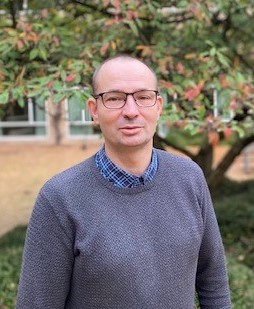LARGE, COMPLEX ISSUES REQUIRE INTERDISCIPLINARY RESEARCH
External national and EU grant givers are increasingly looking for and requiring interdisciplinarity in project applications. Large, complex issues require complex research that draws on a number of academic disciplines. Professor Jesper Givskov Sørensen from the Department of Biology conducts research on using flies in animal feed and food production, and he applied for Independent Research Fund Denmark (IRFD) thematic research funding.

He contacted Professor Andreas Schramm, Department of Biology, who could investigate microbiological issues for insect production, as well asJessica Aschemann-Witzel from the MAPP Centre at the Department of Management, who could examine the consumer angle for the project. They have received DKK 6 million for their research project.
IRDF thematic funding means that the project can be realised. Conducting fundamental research is not enough. “It made sense to look beyond basic biology. Andreas and I felt that we could get some of the way, but not all the way. We needed several more links in the chain to make it work.
And one of those links was the consumer. Therefore, an obvious way forward was to contact Jessica Aschemann-Witzel from the MAPP Centre," says Jesper Givskov Sørensen. They also invited the industry to be part of the project. The industry became involved through workshops, and the aim is for the industry to use the results actively in the future. In Jessica Aschemann-Witzel’s experience, some researchers believe that consumers are automatically willing to take on new innovative solutions. While others know that there are barriers to consumer acceptance that must first be overcome, and that consumers need to be motivated. And what motivates consumers? What knowledge do consumers need or how do they need to change their behaviour in order to accept a new innovation: in this case, flies in the value chain? This is the focus of Jessica Aschemann-Witzel’s part of the project. In her experience, the competencies at the MAPP Centre within consumer behaviour are increasingly in demand by funders. “The social science angle, such as consumer understanding, marketing, and change management in connection with new innovations, are important elements in the green transition. It's not just technology. It’d be great if we could generate more dialogue about this across the faculties. We’d like to work even closer with the natural sciences, which is why I was so pleased when Jesper Givskov Sørensen contacted me," she says. Curious about each other's approach to research Jessica and Jesper primarily consider their joint research project as educational. However, in purely practical terms, it can be a challenge to write an article together, for example, because journals are often very specific. "This would otherwise be a good idea, because it would force us to work together even more," says Jessica Aschemann-Witzel. Jesper Givskov Sørensen is looking forward to getting started and taking the discipline of interdisciplinarity out for a test-drive in the real world. “Basic research is my approach. But I’m delighted when some of what I do can be used for something in reality. There are many examples of this. It felt very natural to do so here. And that's probably why the project received funding. It's inspirational, and I'm really looking forward to seeing what each of us get out of it,” concludes Jesper Givskov Sørensen. Read more about the project here. Read about the MAPP centre here. |